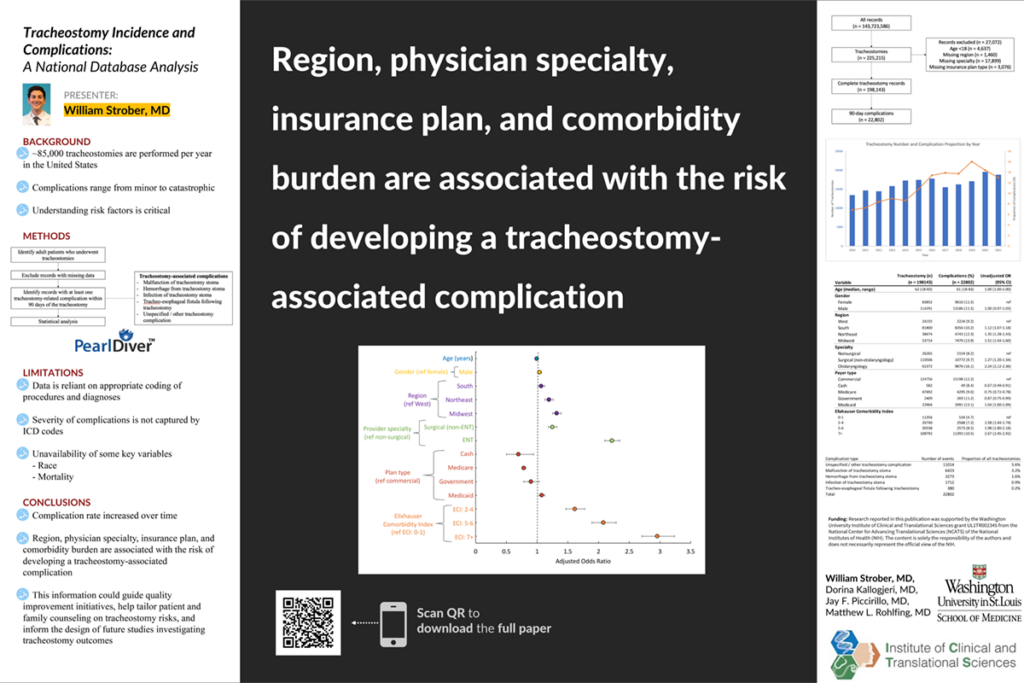
Introduction: Tracheostomy is a common procedure that is associated with various complications ranging from minor hemorrhages to catastrophic events. An estimated 85,000 tracheostomies were performed per year between 2002-2017 in the United States, but despite the high frequency of tracheostomy procedures, the last study to investigate risk factors associated with tracheostomy complications was performed on a 2006 database. In this study we aimed to describe the incidence of tracheostomy-related complications and identify prognostic risk factors by analyzing a large administrative database.
Methods: PearlDiver, a private analytics database of insurance claims from Medicare, Medicaid, and commercial insurance companies, was used to identify patients who underwent tracheostomies and associated complications between January 2010 and October 2021 by CPT and ICD-9/ICD-10 codes.
Results: A total of 198,143 tracheostomies were identified from PearlDiver, and at least one tracheostomy-related complication occurred within 90 days of the procedure in 22,802 (10.3%) of these cases. The proportion of tracheostomy-related complications was 2.3 times higher in 2019 compared to 2010 (95% CI: 2.18-2.52). The risk of developing tracheostomy-complications was associated with the hospital region (highest in the Midwest as compared to the West [OR=1.32; 95% CI: 1.25-1.39]), provider specialty (highest for otolaryngologists as compared to nonsurgical physicians [OR=2.22; 95% CI: 2.10-2.34]), insurance plan type (lowest for cash payment compared to Medicaid [OR=0.70, 95% CI: 0.50-0.94]), and Elixhauser Comorbidity Index (ECI) (highest in patients with ECI of 7+ compared to 0-1 [OR=2.96; 95% CI: 2.17-3.24]), but was not significantly associated with patient age (OR=0.99; 95% CI: 0.99-0.99), or sex (OR=1.04; 95% CI: 1.01-1.07).
Impact: Complications after tracheostomy are common and sicker patients are at higher risk for complications. Identifying factors associated with increased risk for complications could help to improve patient and family counseling, guide quality improvement initiatives, and inform future studies on tracheostomy outcomes.
Organization: Washington University in St. Louis
Strober WA, Kallogjeri D, Piccirillo JF, Rohlfing ML